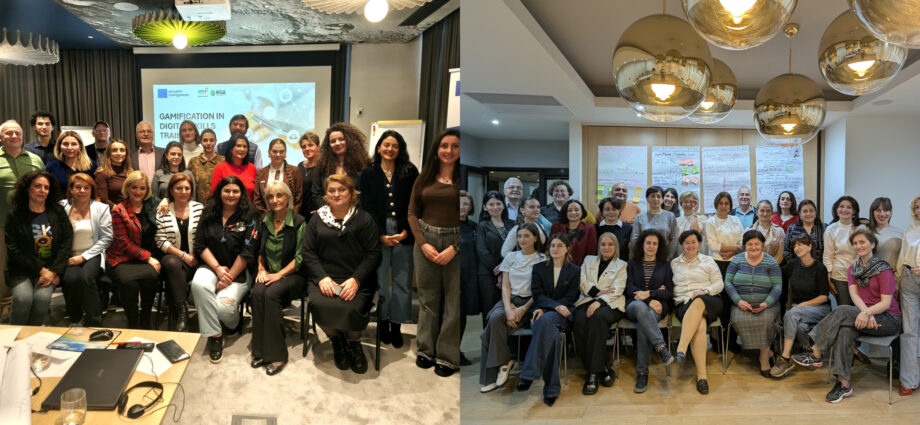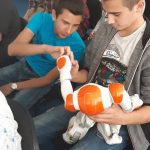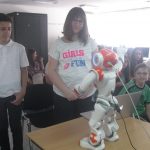Dig-Ed successfully delivered two intensive Мasterclasses on Gamification in Digital Skills Training in Georgia this November, empowering local educators and trainers with practical methods to enhance learner engagement through game-based approaches. The masterclasses were organized in the frameworks of the REDI project funded by the EU and implemented by eGA (Estonia) and SFPL (Poland) in cooperation with Innovative Education Foundation (Georgia). Sessions brought together a diverse group of community trainers, civic educators, and ICT teachers, and were led by Maja Videnovik and Vladimir Trajkovik, from Dig-Ed.
The training began even before participants met in person. In the days leading up to the workshop, they engaged in several online pre-training activities—including a short survey, digital tools tutorials, an introductory case study, and a shared Padlet space where participants introduced themselves and reflect on their use of digital tools in the classroom. This preparation ensured that everyone arrived with a clear starting point and a shared understanding of the training goals. Moreover, participants’ feedback helped to tailor the training to their needs and expectations.
The first two-day masterclass took place on 12–13 November in Tbilisi, bringing together 20 participants from various educational and community training backgrounds. A second masterclass was held on 15–16 November in Kutaisi, engaging 25 participants from schools, training centers, and digital-skills initiatives.
Across both masterclasses, participants were introduced to:
- The foundations of gamification and learner-centered design
- Motivational frameworks, including the Octalysis core drives, for developing digital skills
- Strategies for integrating game elements—such as challenges, points, feedback, and narrative—into digital-skills education
- Hands-on design and prototyping of gamified activities for digital skills education
- Peer feedback, refinement of ideas, and implementation planning
During the first in-person training day, participants explored the foundations of learner-centered design and discussed what makes training engaging, relevant, and motivating. Through interactive sessions, they unpacked the core principles of gamification and learned how mechanics, dynamics, and narratives connect to learning outcomes. The Octalysis Framework provided a lens for understanding learner motivation and helped participants analyze what drives their own learners to participate and persist. By the end of the day, participants redesigned one of their own lessons, incorporating game elements to increase interactivity and better align with learning outcomes connected to developing learners digital skills.

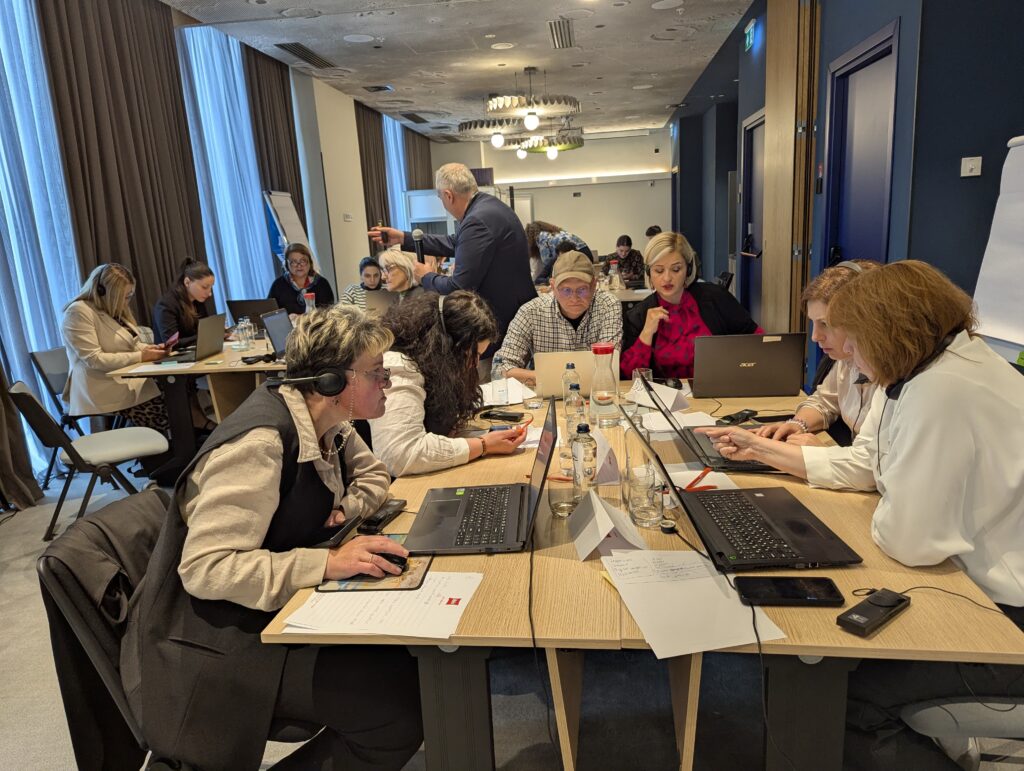




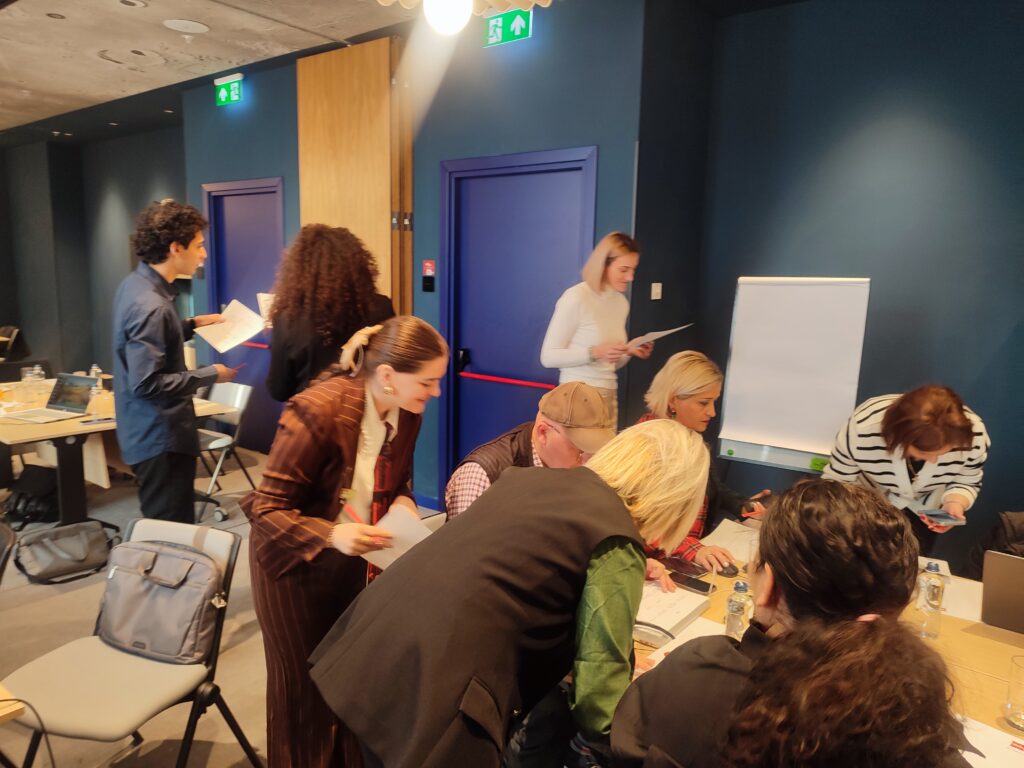
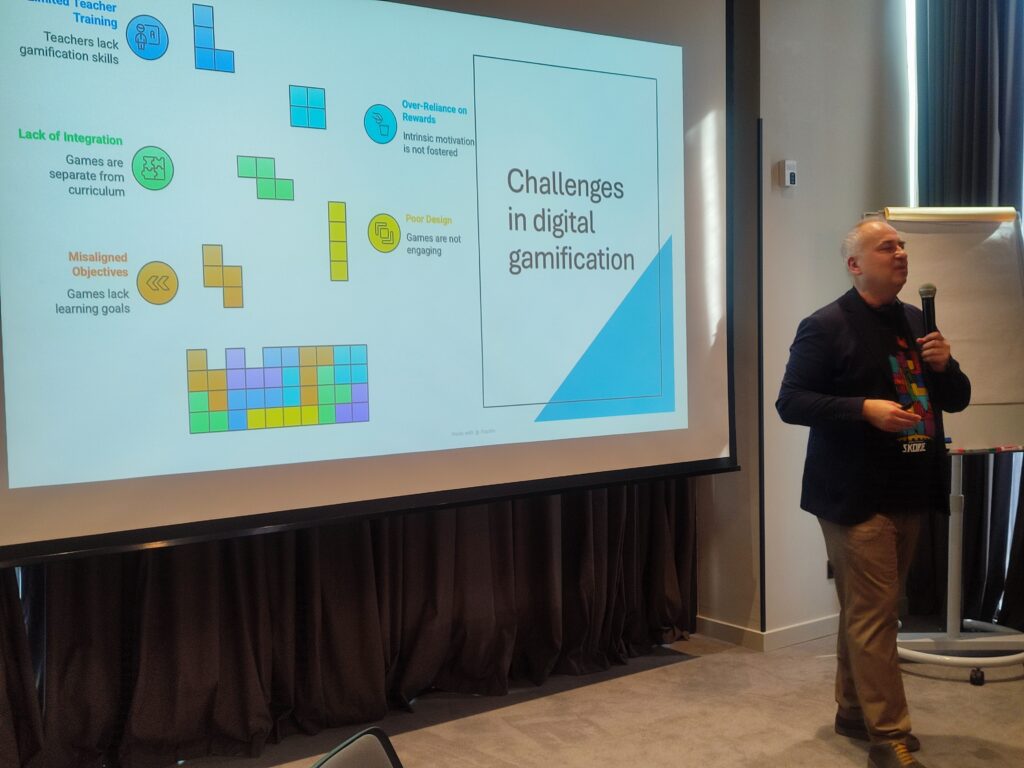

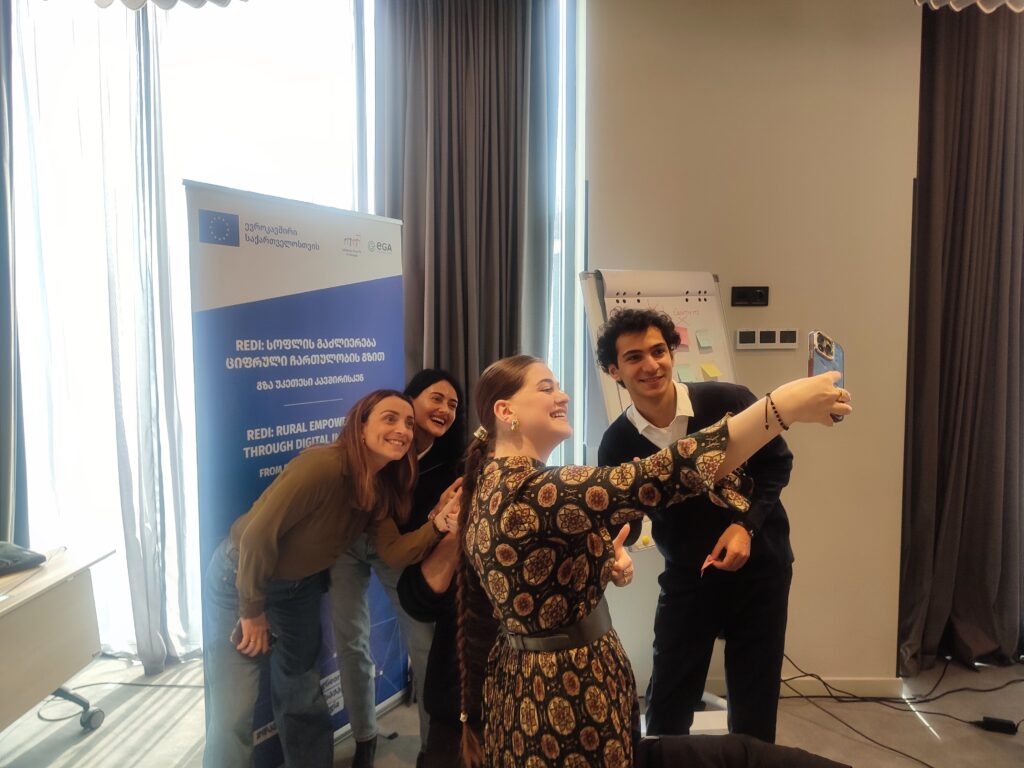
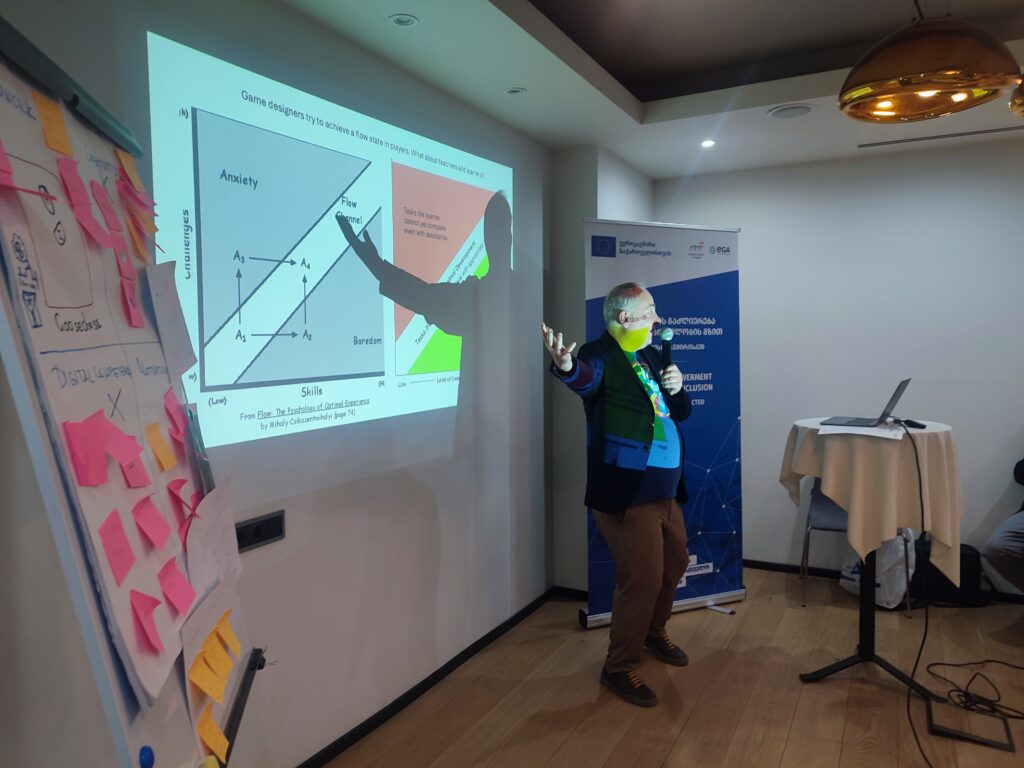

The second day focused on creation and application. Participants experimented with various digital tools and AI-assisted storytelling platforms to enhance their gamified activities. Working in pairs, they prototyped a complete gamified lesson adapted to their specific teaching context. A dynamic Gallery Walk showcased the prototypes, followed by constructive peer feedback using the “Glow & Grow” method. By the end of the workshop, participants left with ready-to-pilot gamified lessons and clear strategies for integrating gamification into their classrooms or training programs.
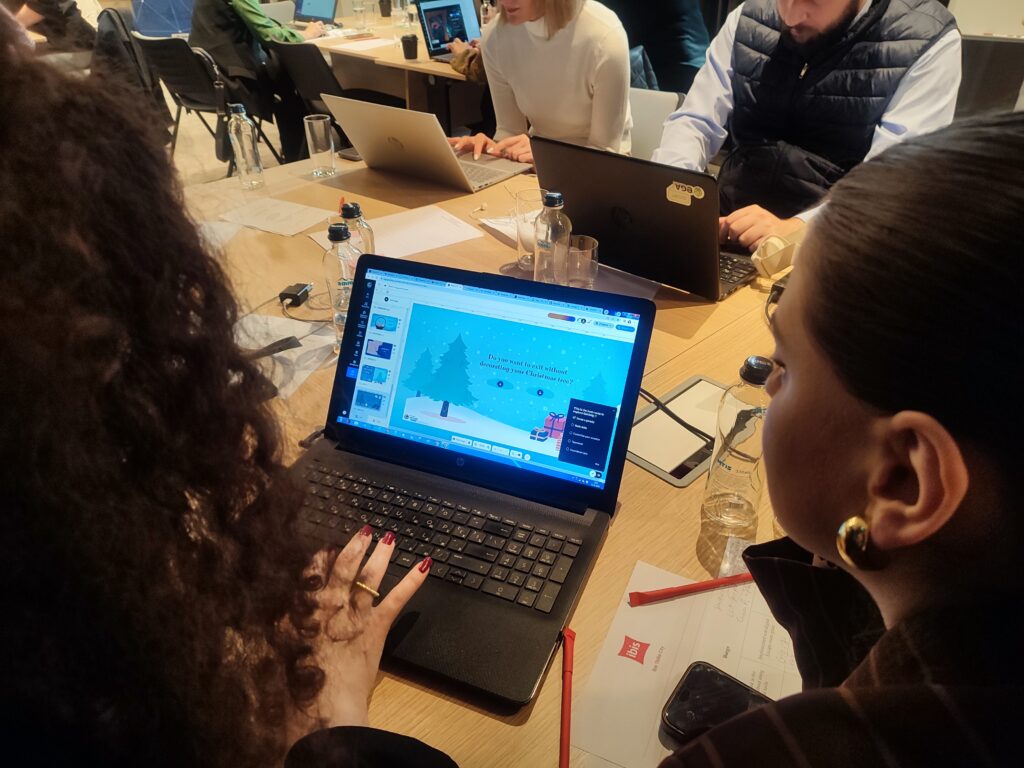
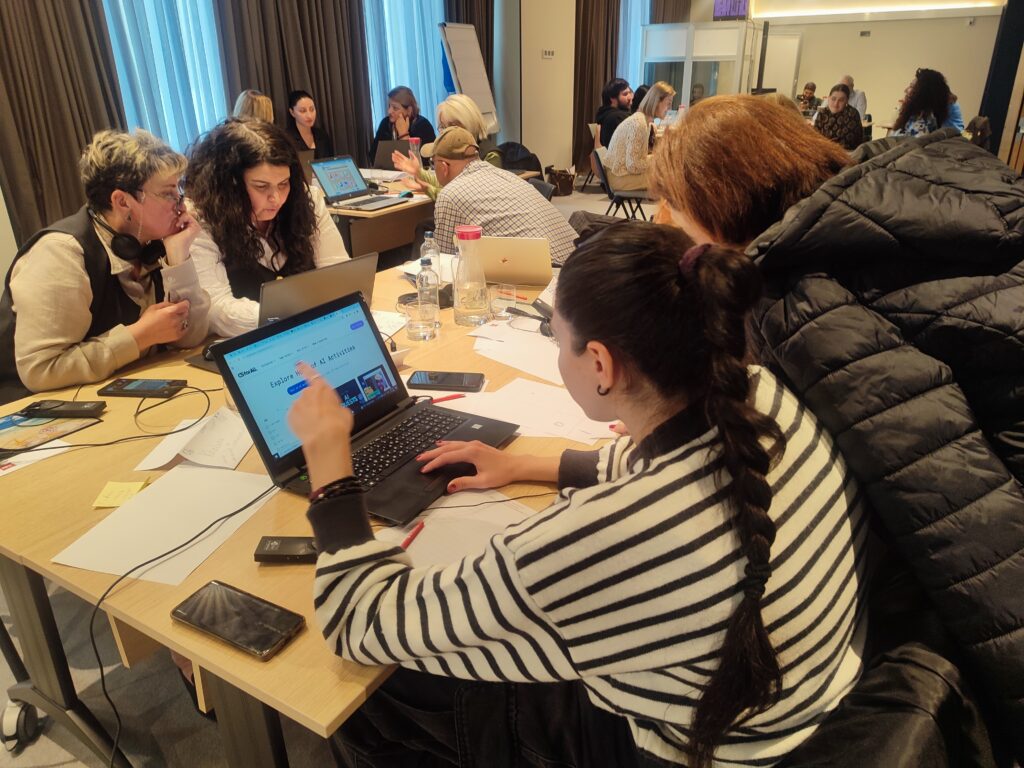
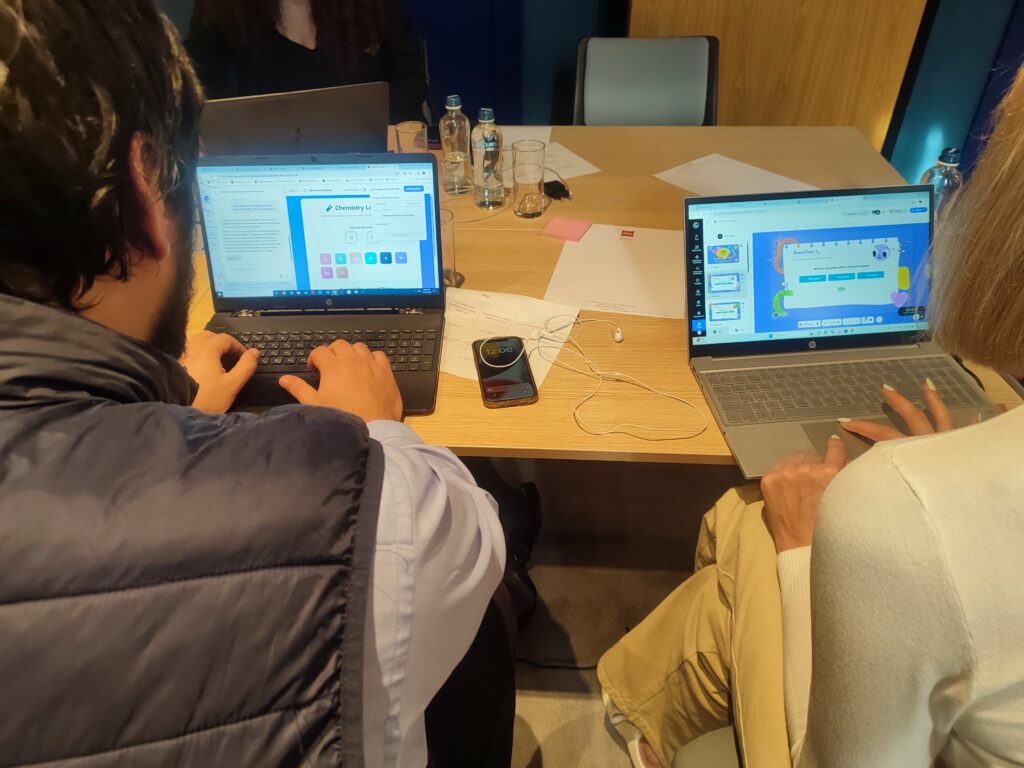
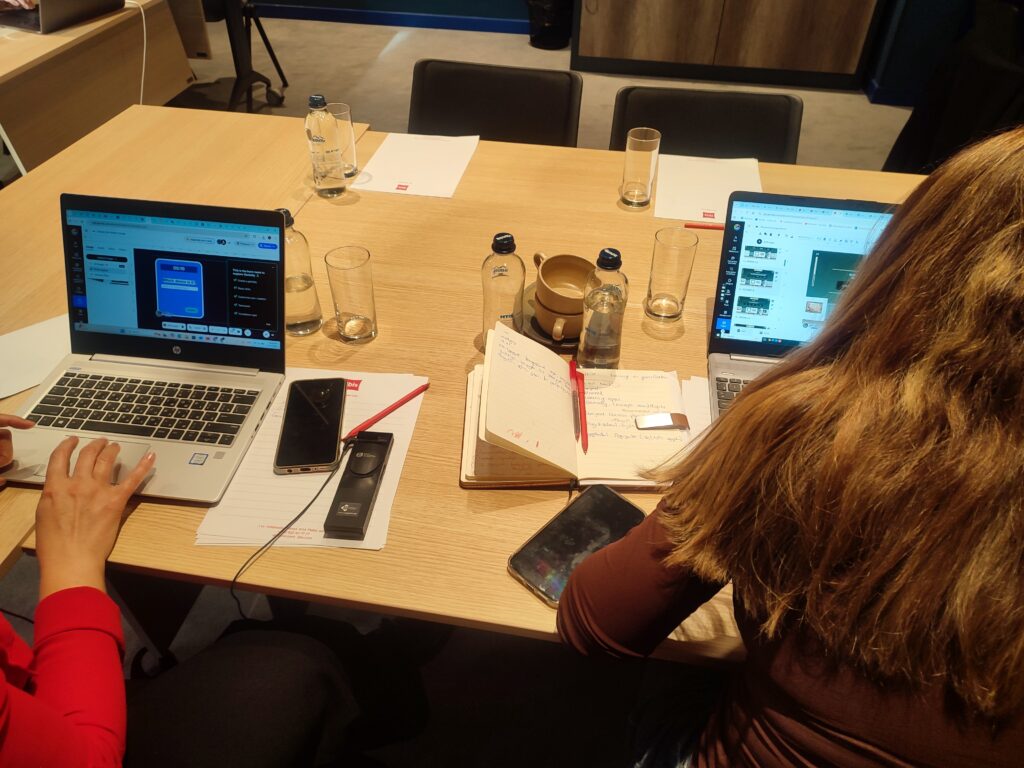
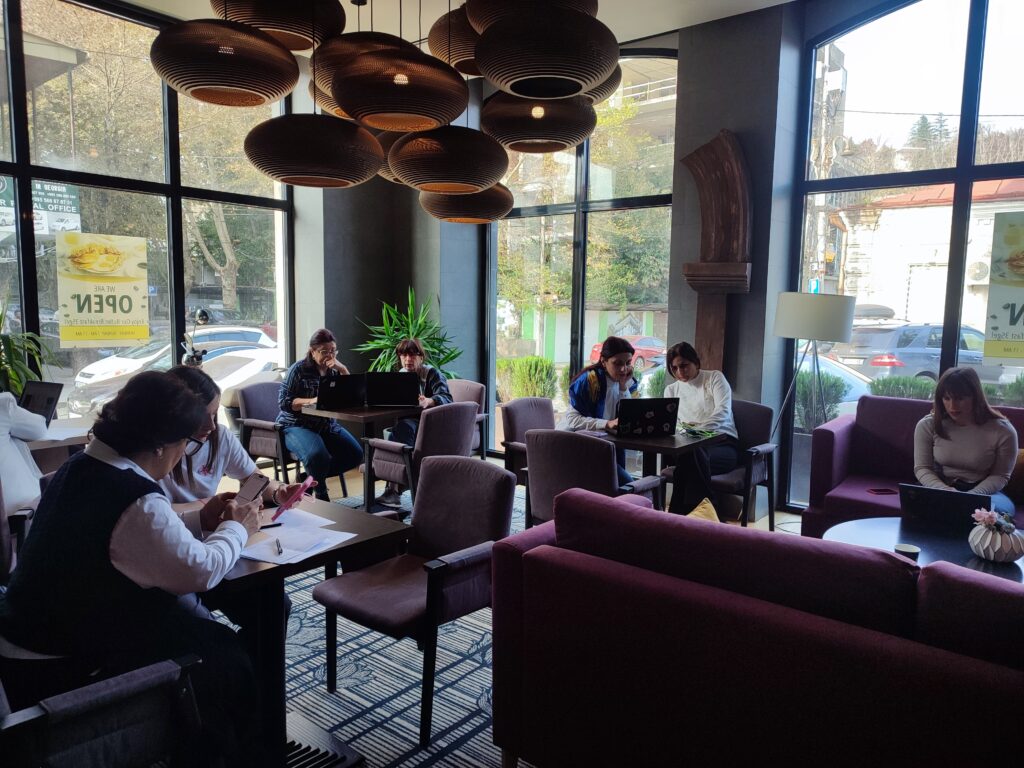
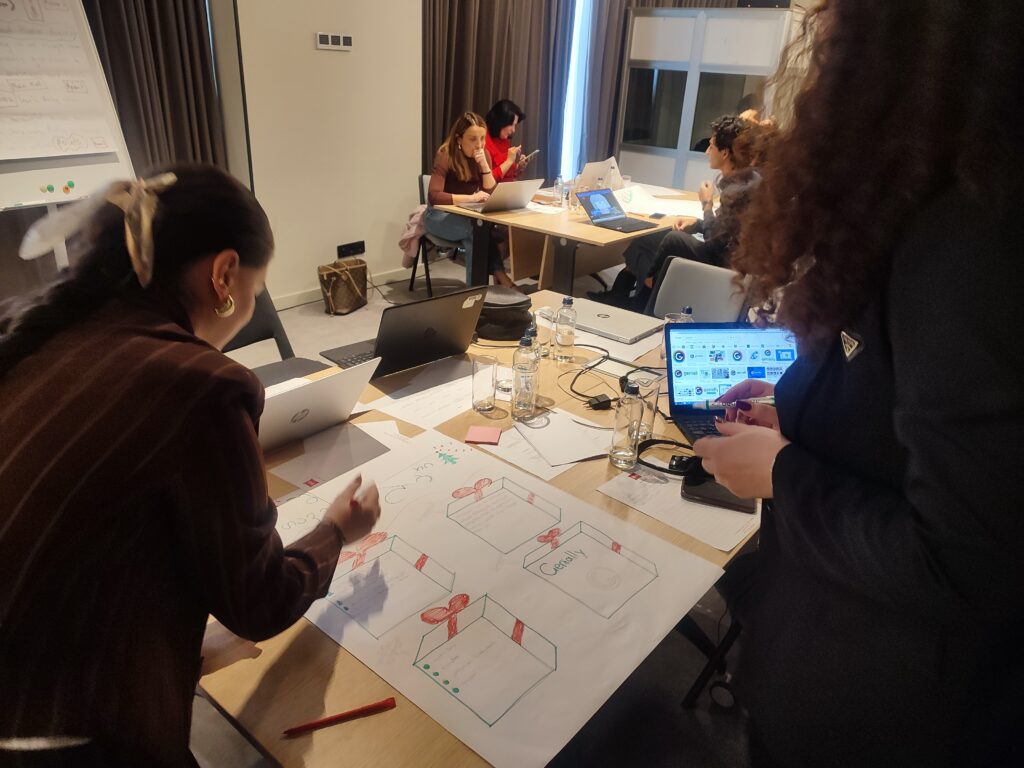
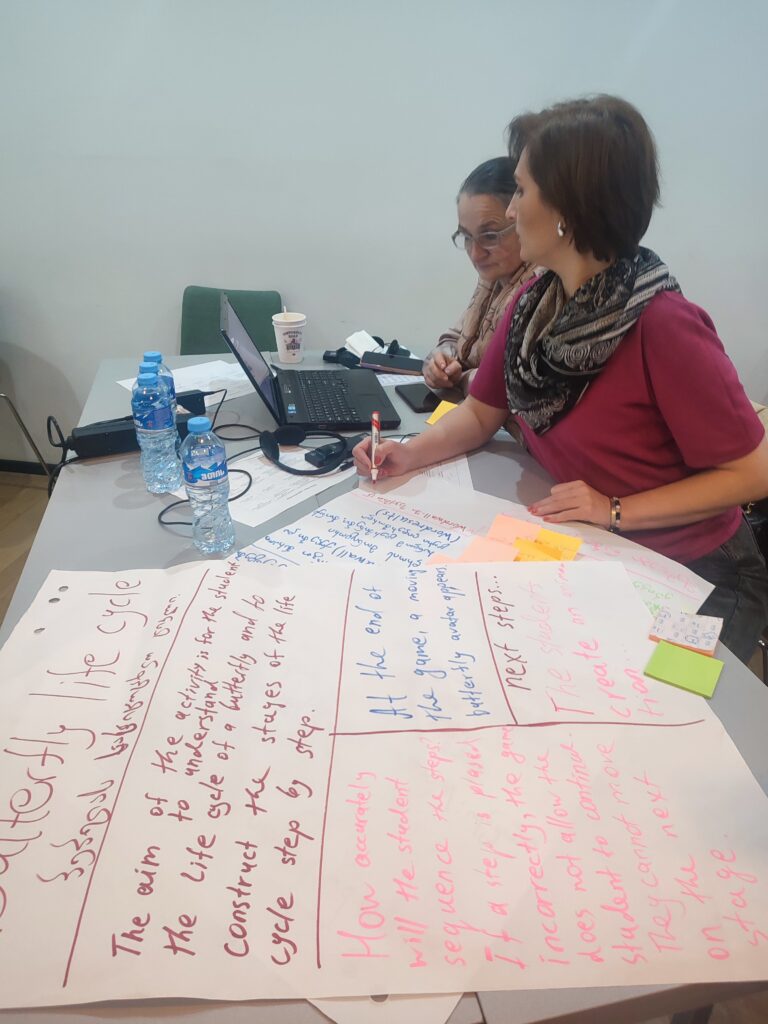

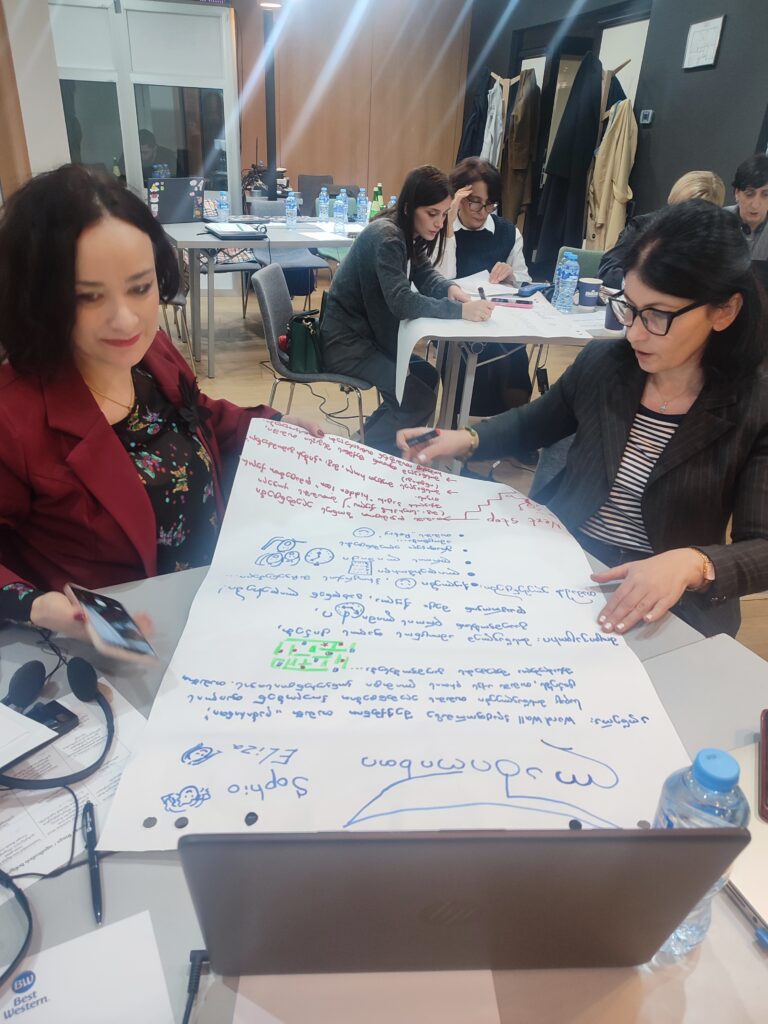


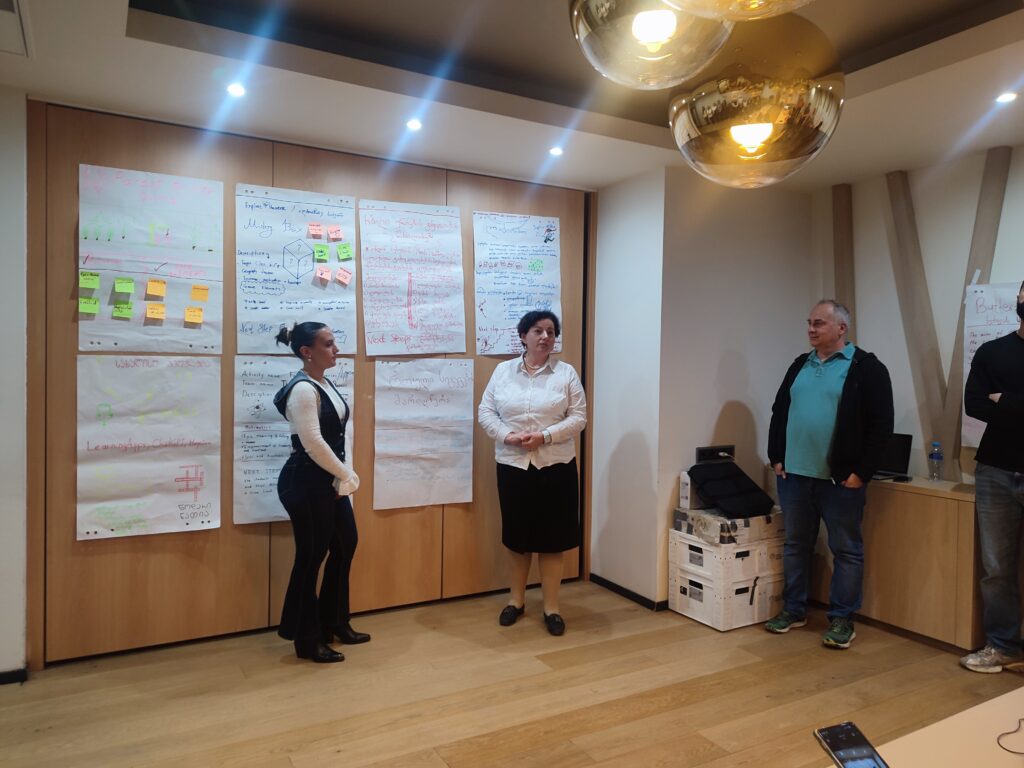
The masterclasses demonstrated that when gamification is applied thoughtfully and intentionally, it can energize both trainers and learners. The Georgia cohort left the program equipped not only with new tools and practical gamified activities, but also with a renewed sense of creativity and confidence to integrate game-based strategies into digital skills education. Additionally, educators network was established to promote ongoing collaboration, sharing, and mutual learning.
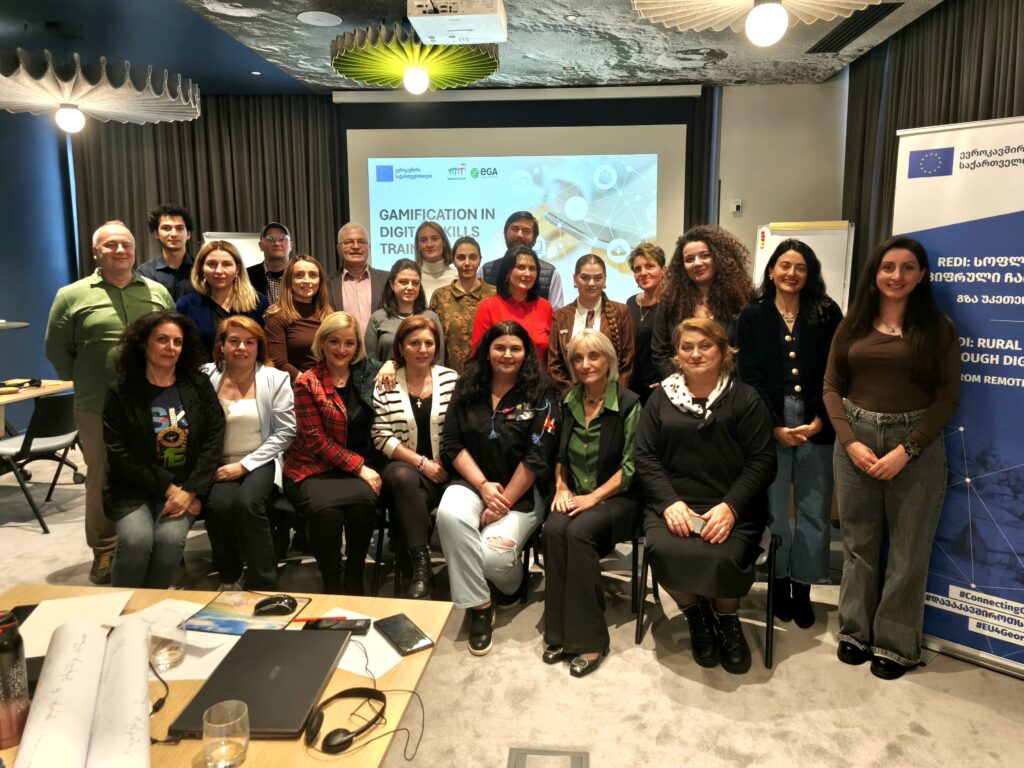

Dig-Ed remains committed to supporting trainers across Georgia in adopting innovative, engaging, and effective approaches to digital skills development.

